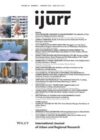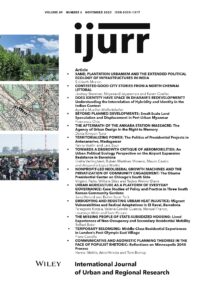In South Korea, urban agriculture (UA) was formalized through national legislation in 2011 and has since become widespread in cities across the country. More than ten years after the passage of the Act on Development and Support of Urban Agriculture, there is still little research examining the sociopolitical context in which UA is practiced and governed, especially outside the capital city of Seoul. In this article we draw on three ethnographic case studies of urban community gardens in Daejeon, South Korea, to advance understanding of the actors and motivations shaping Korean UA. In this study we utilize the concept of everyday governance and urban political ecology theories to illustrate how UA serves as a platform for civil society groups, the national government and local governments, to advance their political and sociocultural goals, which interact in both tension and harmony. We argue that whereas national UA legislation was passed to advance top-down sustainable development goals, local actors challenge the functions of UA and ideas of expertise through their practice. By focusing on the motivations of urban gardeners and their everyday practices, the study described in this article contributes to ongoing literature situating UA within the context of neoliberal governance and grassroots ambitions in the city.
Details
Written by:
Ilana Herold, Buhm Soon Park
Digital Object Identifier (DOI)
https://doi.org/10.1111/1468-2427.13366
About DOI

